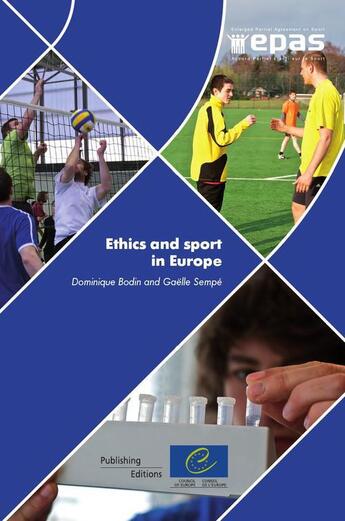Résumé:
Defending ethics in sport is vital in order to combat the problems of corruption, violence, drugs, extremism and other forms of discrimination it is currently facing. Sport reflects nothing more and nothing less than the societies in which it takes place. However, if sport is to continue to... Voir plus
Defending ethics in sport is vital in order to combat the problems of corruption, violence, drugs, extremism and other forms of discrimination it is currently facing. Sport reflects nothing more and nothing less than the societies in which it takes place. However, if sport is to continue to bring benefits for individuals and societies, it cannot afford to neglect its ethical values or ignore these scourges.
The major role of the Council of Europe and the Enlarged Partial Agreement on Sport (EPAS) in addressing the new challenges to sports ethics was confirmed by the 11th Council of Europe Conference of Ministers responsible for Sport, held in Athens on 11 and 12 December 2008. A political impetus was given on 16 June 2010 by the Committee of Ministers, with the adoption of an updated version of the Code of Sports Ethics (Recommendation CM/Rec(2010)9), emphasising the requisite co-ordination between governments and sports organisations.
The EPAS prepared the ministerial conference and stepped up its work in an international conference organised with the University of Rennes, which was attended by political leaders, athletes, researchers and officials from the voluntary sector. The key experiences described in the conference and the thoughts that it prompted are described in this publication. All the writers share the concern that the end result should be practical action - particularly in terms of the setting of standards - that falls within the remit of the EPAS and promotes the Council of Europe's core values.
Donner votre avis














